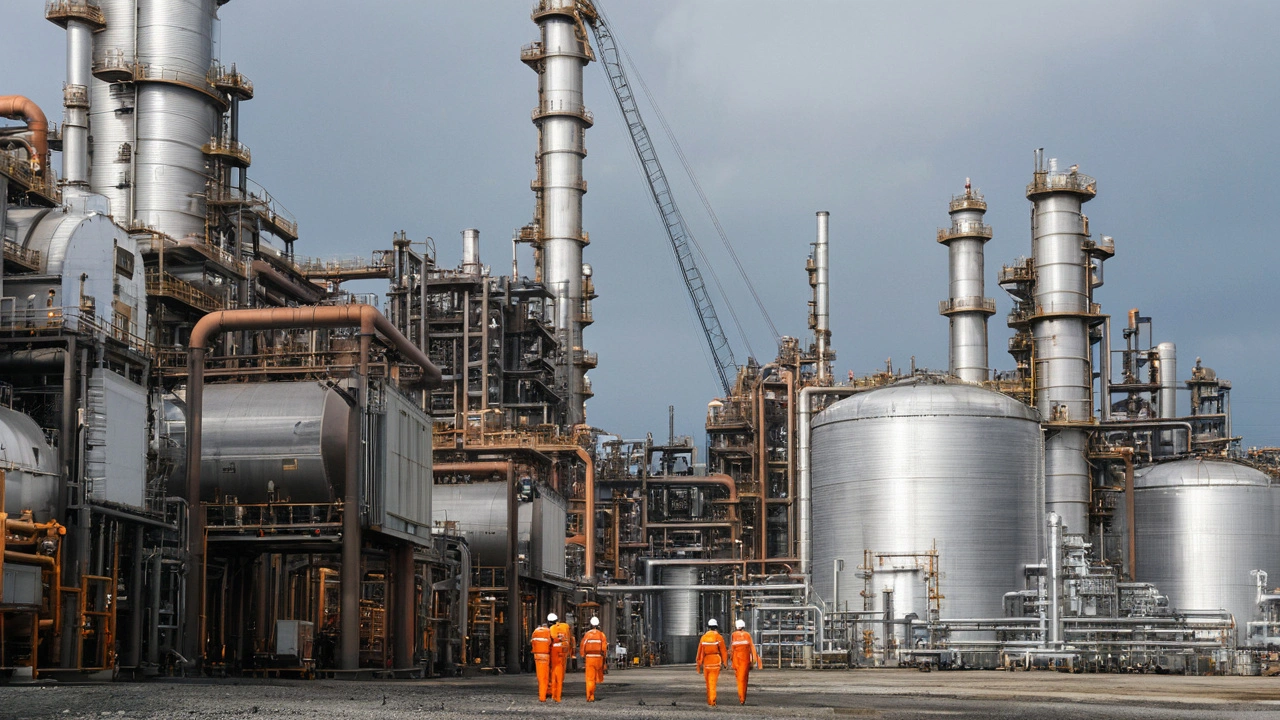Dangote Refinery: How it could change Nigeria’s fuel scene
Dangote Refinery in Lekki is a huge project that aims to turn Nigeria from a fuel importer into a major fuel producer. If you follow fuel prices, business news, or work in transport or industry, this refinery matters. Here’s a clear, practical look at what the refinery does, why it matters, and how to track real updates.
What the refinery is and what it makes
The plant, built by the Dangote Group, is designed to process very large volumes of crude oil. Its planned capacity is among the biggest single-train refineries in the world. The refinery’s outputs include diesel, petrol (gasoline), aviation jet fuel, kerosene, and petrochemical products such as polypropylene. That means it supplies both fuel for everyday use and raw materials for local factories.
Aside from fuels, the site supports related industries. For example, petrochemicals feed plastics and packaging plants, while stable jet fuel supplies can boost airline operations and cargo movement in West Africa.
Why this matters to you
First, domestic refining can reduce the need to import refined fuel. That could save foreign exchange and help stabilise local supply. But don’t expect instant, big drops in pump prices—retail prices depend on taxes, subsidies, exchange rates, and how the refinery’s products are priced and sold.
Second, the refinery brings jobs and business for local suppliers, ports, and transport companies. More local processing also means value is added inside Nigeria rather than abroad. Third, having a major refinery onshore gives the country more control over fuel quality and supply timing, which matters in times of regional shortages.
There are still challenges. A large refinery needs steady crude feed, reliable power, and safe pipelines or roads for distribution. Market decisions — such as selling products locally or exporting them — will shape the real benefits for consumers and businesses.
Want to follow real-time progress? Watch for official updates from the Dangote Group, statements from Nigeria’s energy regulators, and shipment records at Lagos and Lekki ports. Local news outlets and industry analysts often report on supply contracts, trial runs, and product off-takes.
If you run a business that depends on fuel, keep an eye on supply contracts and logistics options as the refinery shifts output patterns. For consumers, the main effects—more consistent supply and gradual market changes—may take time to appear.
Curious about specifics like capacity, product mix, or hiring? Look for direct company releases, industry reports, and government fuel policy updates. Those sources give concrete details you can act on, whether you’re tracking prices, investing, or planning logistics.
Bottom line: Dangote Refinery has the potential to reshape Nigeria’s fuel market and regional supply chains. The scale is real, but the local impact will depend on pricing, distribution choices, and how quickly related infrastructure and policy keep up.
